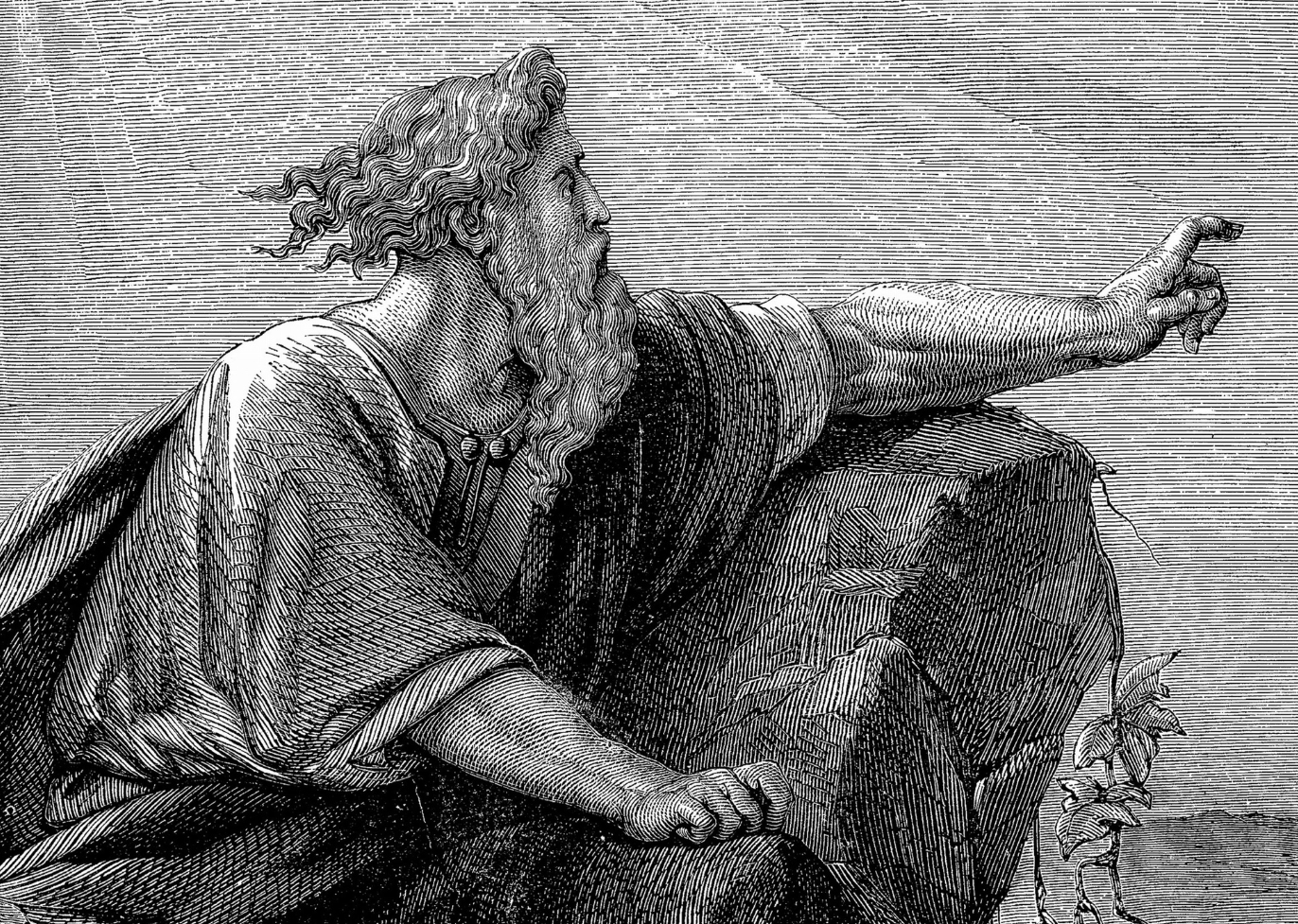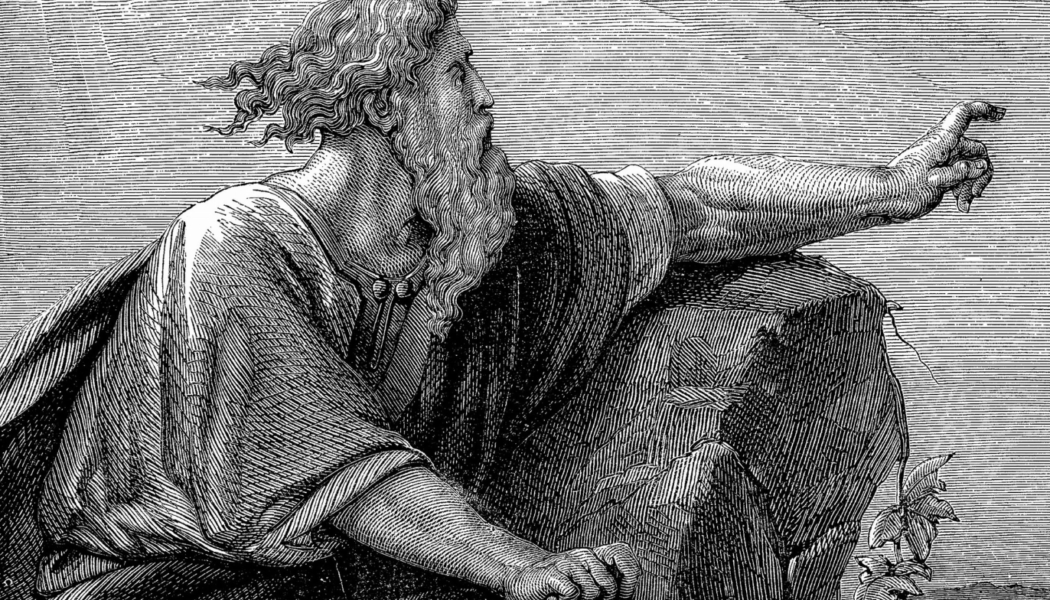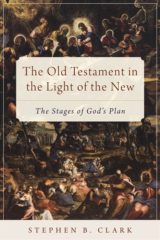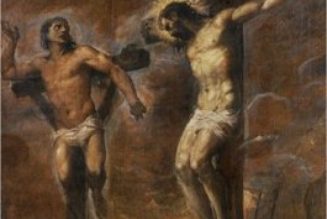By Clement Harrold

Chapter 4 of the Book of Exodus contains one of the strangest passages in all of Sacred Scripture. Verses 18-26 describe how Moses, living in exile in the land of Midian, goes to his father-in-law Jethro to request permission to return to his own people back in Egypt. Jethro consents, and so Moses sets off together with his wife, Zipporah, and their sons.
Then comes the weird part. We are told that, “At a lodging place on the way the Lord met him and sought to kill him” (v. 24). In a bizarre display of quick thinking, Zipporah responds by hastily circumcising her son, and holding the foreskin to his feet. Stranger still is the fact that this unorthodox tactic actually works! God allows the family to continue on their way.
How are we supposed to understand this perplexing episode? We must acknowledge from the outset that the passage in question is one of the most obscure texts in the whole Bible. Modern commentators and ancient rabbis alike have wrestled with its meaning, and various different theories have been proposed over the centuries. Here we shall offer just one such theory—not with an eye to solving all of the difficulties, but simply to offer a few pointers that might render it a little more intelligible.
The emphasis on circumcision in the passage suggests that Moses was guilty of failing to circumcise his son. The implication is that the family had lapsed into the Midianite custom of delaying circumcision until shortly before marriage. This was in direct contravention of the Abrahamic covenant, in which God commanded that all male newborns be circumcised on the eighth day after birth (see Gen 17:9-13).
Moses, it seems, had become overly acquainted with the cultural customs of his in-laws, even to the point of disobeying the edicts of the God of Israel. This is a risky business because, as the passage reveals, the divine patience may be considerable, but it doesn’t last forever. Having appointed Moses as His chosen deputy to lead His people out of Egypt (see Ex 4:1-17), God now calls him to account for failing to keep his own house in order.
It’s at this juncture that we confront the first of several major ambiguities in the text. When verse 24 recalls that “the Lord met him and sought to kill him,” it actually isn’t clear whether the “him” in the passage refers to Moses or, alternatively, to his son Gershom. In a number of respects, assuming that the target of the attack is Gerhsom makes the whole passage easier to understand, and so that is the interpretation we will adopt here.
The phrase “sought to kill” requires some explanation. The ancient Israelite readers of the book of Exodus knew as well as we do that God is all-powerful, and so if He wanted to kill the boy Gershom, He could have done so instantly. The fact that Gerhsom doesn’t fall dead on the spot proves that God’s end goal was not to slay him, but rather to bring about a deeper conversion on the part of his family.
One possibility is that the child suddenly fell ill on the journey, and his parents realized he hadn’t long left to live. It is at this point in the story that Zipporah proves herself to be remarkably resourceful. Indeed, the fact that she understood immediately what was going on may be evidence that she had played some role in the decision to delay the circumcision of their son. In any case, she clearly intuits that circumcision of their son is what is now required, and so she carries out the deed with great haste.
What follows is not totally clear given the uncertainties in the Hebrew. Zipporah touches the foreskin to the feet of either Gershom of Moses; the grammatical structure here is ambiguous, and “feet” could also be a Hebrew euphemism for the genitals! In any event, it is clear that Zipporah is acknowledging the deep covenantal symbolism attached to the act of circumcision, leading her to exclaim, “Surely you are a bridegroom [or kinsman] of blood to me!” (v. 25). Having learnt her lesson the hard way, she now recognizes the necessity of the shedding of blood to restore her child’s relationship with God, and usher him into the family of Israel.
The connection between the circumcision of Gershom and the events of Passover night should also not be overlooked. God’s decision to afflict Gershom comes immediately after his warning to Moses about the killing of the firstborns which He attends to inflict upon Egypt if Pharoah fails to repent (see vv. 21-23). Just as the slaying of the firstborns will take place at night, likewise the attack on Gershom seems to occur after dark, given that the family had stopped at a lodging place (see v. 24). And just as Gershom is saved by the ritual shedding of blood, so too in the tenth plague the Israelite children will be saved by the blood of the lamb.
Although it is Gershom who—at least according to our interpretation—is the object of the divine attack, nevertheless it is essential to understand that it is really Moses, and to some extent Zipporah, who is the object of divine rebuke. Reflecting the ancient Jewish awareness of the social structure of sin, the text reveals how the (presumably innocent) Gershom must undergo suffering on account of the sins of his father, just as the Israelite firstborns will suffer on account of Pharaoh and just as Jesus will suffer on account of humanity.
Moses ought to have exercised spiritual leadership in his family, but he didn’t. Instead, he raised his son as a Midianite, thereby neglecting the faith of his ancestors. He was called to lead the peoples of Israel, yet he failed to remember that holiness begins at home. In the words of one commentator, Moses was acting like the woman in Song of Songs 1:6: “they made me keeper of the vineyards; but, my own vineyard I have not kept!” Moses was willing to take care of everyone else’s needs, but he made the fatal mistake of ignoring his own vineyard in the process.
Then as now, God demands radical holiness from His creatures. He makes this demand not for us to be miserable, but because He loves us. He gives us the law because He knows how much sin hurts us, and He offers us the covenant because He wants us to become blood relatives within His divine family. In safeguarding the spiritual life of our own families, therefore, we should avoid the kind of complacency first shown by Moses and Zipporah, and at the same time draw inspiration from their speedy desire to make amends.
Clement Harrold is a graduate student in theology at the University of Notre Dame. His writings have appeared in First Things, Church Life Journal, Crisis Magazine, and the Washington Examiner. He earned his bachelor’s degree from Franciscan University of Steubenville in 2021.
You Might Also Like
While the Old Testament books are directed to the people of Israel, they also bear great significance for Christians who can decipher in Old Testament writings the gradual phases of God’s salvific plan. In The Old Testament in the Light of the New: The Stages of God’s Plan by Stephen B. Clark, the author provides a comprehensive presentation of how and why the Old Testament forms part of the Christian Bible and offers a program for how to read the Old as a Christian—namely, in the light of the New.
Stephen B. Clark is the former President of Sword of the Spirit, an international ecumenical Christian community. He is currently a regional missionary coordinator in the community. In addition to lecturing regularly around the world, Clark is the author of many books, including Baptized in the Spirit, Building Christian Communities, Redeemer, and Man and Woman in Christ. He resides in Chelsea, Michigan.








![Wall Street Journal: U.S. Catholic Priests Are Increasingly Conservative as Faithful Grow More Liberal [paywall]…](https://salvationprosperity.net/wp-content/uploads/2022/12/wall-street-journal-u-s-catholic-priests-are-increasingly-conservative-as-faithful-grow-more-liberal-paywall-327x219.jpg)

